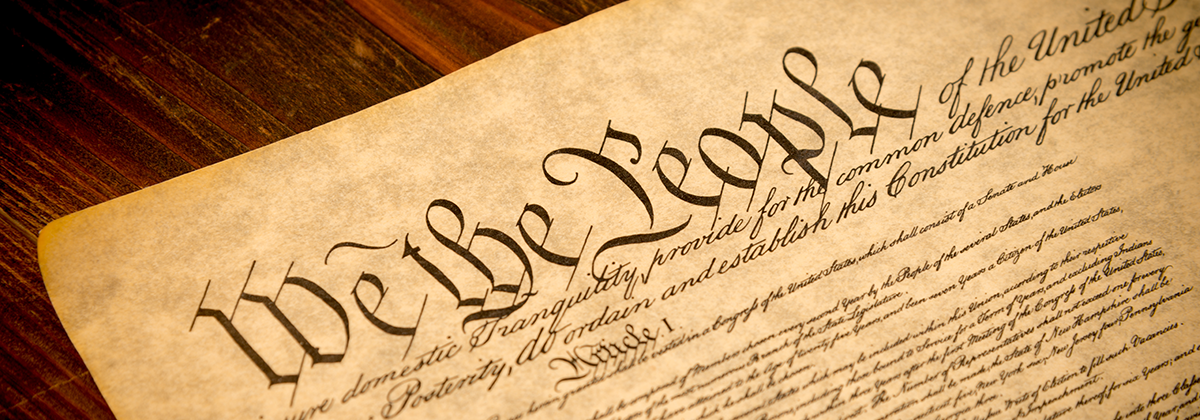Ever have one of “those” conversations with people of differing views on social media? You know, the ones where you think before you comment. You know you are in a territory of opposing viewpoints. However, you decide that this one is worth your time. Know what I’m talking about? Well, I had one of “those” conversations the other day concerning the phrase, “Separation of Church and State.” One person said that this was good that we have separation of Church and State in our nation. This individual was in favor of taking down a sign that said “In God We Trust.” Here is my response:
“I appreciate your concern. I really do. I teach the U.S. Constitution. “Separation of Church and State” does not appear anywhere in our founding documents. It’s not anywhere in the Declaration of Independence or the Constitution. However, it does appear in Communist doctrine. Our first amendment forbids Congress from establishing a national religion (think: United States Church of Christ… or something like that). The sign does not establish a religion. It invokes a power higher than the State. In Communism, the State is the highest power. God is forbidden to be acknowledged. I know that the media promotes the idea that we have separation of church and State, but we do not. What we have is the freedom to worship-or not…. I hope this clears up any misunderstanding…” I concluded with respect and gratitude for this person allowing me to post on the page.
That was my short answer. Even if the person does not accept this view, maybe someone else who reads the post will at least become aware that our organic founding documents (Declaration of Independence and the U.S. Constitution) are the foundation of our country, not powerful organizations in any given generation.
Someone else chimed in on the debate. Here is the comment, in part, with my thoughts in parentheses after it:
“It is well -established law that church and state are separated in the U.S…” (It is only “well-established” by the media and in academia. It is NOT established at all in our founding documents. This person approaches the issue from the premise that we are a nation of men, not laws. Actually, it is the reverse. We are a nation of laws, not men. We are not governed by the feelings of people that may fluctuate with each passing generation. That is not the country our Founders gave to us.)
The response to my original post continued:
“But because we all don’t pray to the same God, the State cannot favor one religion over another. Period.” (Let’s break this down: “We don’t all pray to the same God.” In fact, a significant number of Americans don’t pray at all. The United States of America does not base its foundation on what we do or don’t do. America’s foundation is the freedom we have to live within the boundaries of our laws which correspond (or should correspond) to the Laws of Nature and Nature’s God [see the Declaration of Independence].” The further we have digressed from the foundation of the Laws of Nature and Nature’s God, the more confused the American population has become).
And finally, the person said:
“Communist dictatorships outlawed the practice of religion. Our government cannot do this. That’s the difference.” (No. The difference is that the State is god in Communism. No rivals are tolerated. Our country was conceived in liberty and tolerance is a part of liberty, although tolerance today seems to be an ever-growing map of one-way streets. If it’s true that politics flows down from culture, then We the People are responsible for accepting any other view of law and government other than the American view, based on our country’s foundations.
How do you handle those difficult conversations in a Common Sense Civics and Citizenship way?

